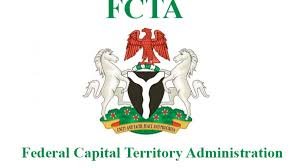[ad_1]
· Online meetings back to Covid-19 peak
By Sarah NEGEDU
The Federal Capital Territory Administration, FCTA, has given the indication of the commencement of the sales of subsidized grains and fertilizers to cushion the impact of the rising food prices on residents of the territory.
The announcement follows the recent declaration of a state of emergency on food security by President Bola Tinubu in the wake of the recent removal of petroleum subsidy.
Penultimate week, the president in declaring the state of emergency on food security gave a directive that issues of food availability and affordability be included within the purview of the National Security Council.
The FCT Administration said it has already initiated strategies to key into the programme of subsidized basic food commodities in the territory.
Director of Information and Communication of the FCTA, Muhammadu Sule, in a statement explained that the decision was taken at an emergency meeting of the management of the FCT Administration, weekend.
FCT permanent secretary, Mr. Olusade Adesola, who chaired the meeting, stated that in consonance with the presidential declaration, the administration in Abuja has immediately keyed into the programme to bring succour to the ordinary residents.
Adesola disclosed that the Federal Government had made provision for 150,000 metric tons of maize and 4,496,533 bags of fertilizer for distribution to all states and the FCT to help address the concerns around food insecurity in the country.
He added that the FCTA has already set a committee to flag-off the scheme to jump start the Federal Government’s efforts in reducing hardship on the populace.
In his words, “The administration will surely work to make the robust impact on the lives of the ordinary residents of the Federal Capital Territory in line with the vision of President Tinubu.”
Earlier in the week, the Special Adviser to the President on Special Duties, Communication and Strategy, Mr. Dele Alake, disclosed that some of the action plan would include an immediate release of fertilisers and grains to farmers and households to mitigate the effects of the fuel subsidy removal.
Alake told journalists after a meeting of stakeholders on agriculture and food production value-chain that the president was not unmindful of the rising cost of food and how it affects the citizens.
“While availability is not a problem, affordability has been a major issue to many Nigerians in all parts of the country. This has led a significant drop in demand thereby undermining the viability of the entire agriculture and food value chain.
“Accordingly, in line with this administration’s position on ensuring that the most vulnerable are supported, Mr. President has declared, with immediate effect the following actions:
“That a state of emergency on food security be announced immediately, and that all matters pertaining to food and water availability and affordability, as essential livelihood items, be included within the purview of the National Security Council.”
On steps to be taken to give effect to the president’s order, Alake said a number of initiatives would be deployed in the immediate, medium and long terms, adding that goals to be achieved have been marked.
According to him, some of the steps to be taken would include all-year round farming, creation of special purpose vehicles, like the commodity board, to liberalise the food production value chain, the immediate activation of land-banks across the country, as well as putting an end to the age-long and problematic nomadic animal husbandry, which would be replaced with government-managed ranching.
Alake said, “We will immediately release fertilisers and grains to farmers and households to mitigate the effects of the subsidy removal.”
He also disclosed plans to create and support a National Commodity Board that will review and continuously assess food prices as well as maintain a strategic food reserve that will be used as a price stabilisation mechanism for critical grains and other food items.
Residents of the FCT like their counterparts across the country, have been battling high cost of living and transportation with the removal of petroleum subsidy on May 29.
Our correspondent observed that vehicular movements in most parts of the territory have dropped as many roads and streets are deserted with very few cars plying them.
Most car owners who spoke to The Abuja Inquirer said this was the direct consequences of the recent hike in the price of petrol with a litre sold in major filling stations in Abuja at N620.
The number of vehicles on the major roads like the Abuja/Keffi, Lugbe/Airport, Kubwa Express roads nosedived compared to what it used to be earlier in the year.
Our correspondents, who also monitored traffic situation in busy areas like Area 11, Wuse 2, Gwarimpa, observed that heavy traffic, which usually occurred during the peak periods in those areas have all fizzled away.
The increment is also having effect on work hours as workers at the Federal Secretariat say they now operate shift system at the office.
This is evident in the parking space adjacent to the complex which is half occupied, and same thing in the different lobbies of the buildings.
A staff, who gave his name as Jubrin, told this newspaper that there has been a significant reduction of staff reporting for work by more than 50 percent.
“We now use what we call ‘local arrangement’ whereby some of us would come to work and cover for others. Even though this might work as a stop-gap measure, it will certainly affect productivity in the future,” he said.
[ad_2]
Source link



